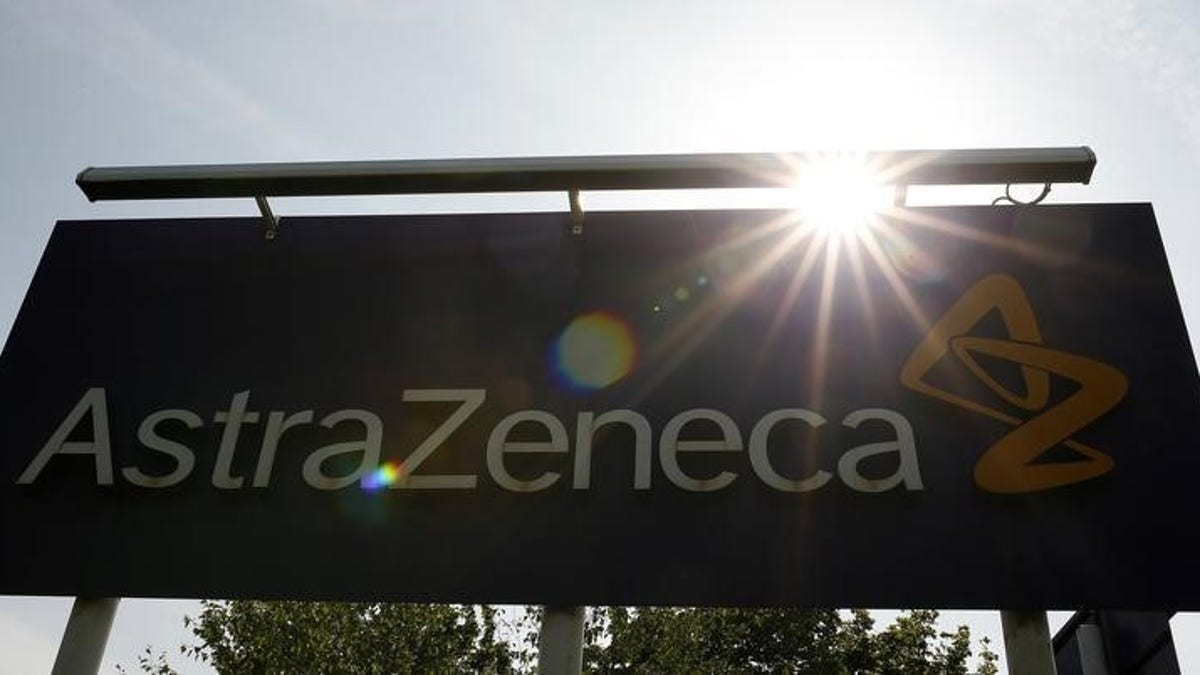
A sign is seen at an AstraZeneca site in Macclesfield, central England May 19, 2014. REUTERS/Phil Noble (Copyright Reuters 2015)
A closely watched AstraZeneca drug did not extend lives of patients with the rare cancer mesothelioma when given on its own, but the drugmaker said it still believed the medicine had a role to play in combination treatments.
Mesothelioma is a deadly form of cancer that affects the lining of the lungs or abdomen. Patients typically live only nine to 12 months after initial diagnosis.
In a clinical trial tremelimumab failed to meet the goal of improving overall survival in hard-to-treat mesothelioma patients whose disease had already been treated unsuccessfully with standard drugs, AstraZeneca said on Monday.
Shares in the company fell 2.2 percent following the news.
"We are disappointed that tremelimumab monotherapy did not demonstrate a survival benefit in this patient population with no approved medicines beyond first-line treatment," said Robert Iannone, the company's head of immuno-oncology.
"However, we remain confident in tremelimumab’s clinical activity in combination."
Tremelimumab is also being tested in combination with another of AstraZeneca’s immune-boosting drugs called durvalumab in multiple tumour types, including non-small cell lung cancer.
AstraZeneca is relying heavily on new cancer drugs to drive long-term growth and replace sales lost from older products that are going off patent.
Its biggest oncology bets are in the field of immunotherapy, or medicines that boost the body's natural immune system defences to fight cancerous cells.
However, the British-based group is facing tough competition from various rivals, including Bristol-Myers Squibb, which has pulled ahead in the race to dominate the hot new area of cancer medicine.
